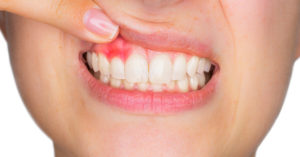Table of Contents
 Your smile happens to be an asset of a lifetime that you wish to restore for the rest of your life. Naturally, if you find that your gums are bleeding at the time of brushing your teeth, you may face a rude shock. There are a number of reasons that your gums may start to bleed at the time of brushing. Some of these causes may be temporary while some others can invite more trouble.
Your smile happens to be an asset of a lifetime that you wish to restore for the rest of your life. Naturally, if you find that your gums are bleeding at the time of brushing your teeth, you may face a rude shock. There are a number of reasons that your gums may start to bleed at the time of brushing. Some of these causes may be temporary while some others can invite more trouble.
But before moving on to the causes of gum bleeding you should know something about what gum disease is. Gum disease happens to be an inflammation of the gum line that can advance to affect the bone that supports and surrounds your teeth. The three stages are – gingivitis, periodontitis and advanced periodontitis. Gum bleeding can be one of the major symptoms that indicate to the fact you may be suffering from gum disease.
Here are some of the major causes of gum bleeding that you should know so that you can have prior knowledge and some idea about what can be the cause of this condition before you go to the dentist.
- Medications – One of the most common causes of gum bleeding happens to be the intake of blood thinning medication. This medicine reduces the ability of the blood to clot that makes gum bleeding much easier. You should let your doctor and dentist know about this experience and any medications that you may be on.
Related:
- Gingivitis – This happens to be the first stage of gum disease. Plaque on the gum line and the teeth that cannot be removed by flossing and brushing can infect the gums and can lead to gingivitis. When gingivitis occurs your gums can get swollen and tender. This may lead to bleeding during brushing. The early stage of this responds well to the regular dental check-ups and brushing and flossing habits.
- New Toothbrush – If you switch from soft-bristled toothbrush to a firm brush it can lead to the bleeding of the gums. You should try to return to a medium bristled and soft brush and talk to the dentist about which toothbrush is right for you at the very next appointment.
- New Routine of Flossing – Your gums can also start bleeding if you change your flossing routine. For example, if you have not flossed for a few days or when you have started to floss more frequently for removing food plaques you may notice some bleeding. This should clear up within a week or so and you do not need to worry for this.
- Pregnancy Gingivitis – During brushing, some pregnant women experience bleeding and the swollen gums. This is termed as pregnancy gingivitis. The hormonal changes in the body alter the response of the body during pregnancy that causes the gum disease. The experts of dental treatment in Delhi suggests that after pregnancy this symptom should clear up. Regular brushing and flossing and timely dental check-up can help to prevent this problem from getting worse.
The above are some of the major causes of gum bleeding that you should be aware of. You should never delay seeing a dentists after you have experienced this for a few days as this can have far reaching consequences and keep it in mind that early detection leads to early treatment and faster results.



